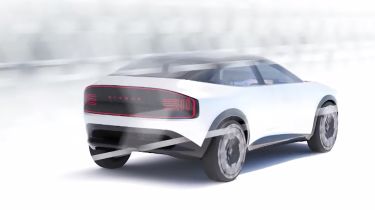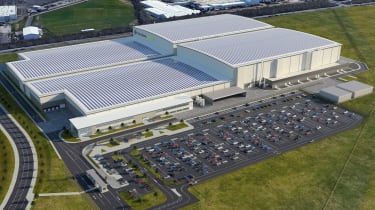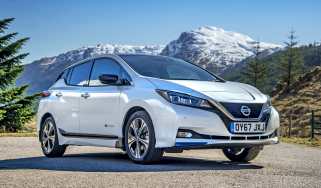Nissan Leaf replacement to be built in Sunderland at £1bn EV36Zero hub
Nissan is bringing major new investment to the north-east of England with a £1billion battery and vehicle manufacturing hub
Nissan has confirmed that it is to build a the successor to the Leaf electric car at its Sunderland plant in the north-east of England as part of a deal that will bring a major new battery factory to the UK.
The new EV manufacturing hub, called EV36Zero, represents an overall investment of around £1billion from Nissan and its partner, battery manufacturer Envision AESC. It will create 900 jobs directly at Nissan and 750 new Envision AESC jobs, as well as securing more than 4,500 jobs in the wider supply chain. The battery plant will be based at the International Advanced Manufacturing Park (IAMP), a new hub situated just to the north of Nissan’s own Sunderland site.
The overall capacity for the new Nissan factory will be an initial 9GWh - a relatively small amount compared with what many industry experts say the UK will need if it is to remain a competitive base for car manufacturing.
But the deal does represent a significant boost for Sunderland, since one of the main reasons for siting the battery factory next door to the existing car factory will be to supply what Nissan calls a “new-generation electric crossover”.
Given the timings involved, this is all but certain to be the successor to the current Nissan Leaf, the hatchback EV that has been made in the UK since 2012. The lifecycle of the current edition of the car should end in around 2024, allowing time for the battery plant to come on stream as the vehicle switches to the Renault-Nissan-Mitsubishi Alliance’s new CMF-EV platform. Setting up production of the model accounts for just over £400m of Nissan’s investment in EV36Zero.
The Envision AESC site will have scope to expand to up to 35GWh of capacity, and it could ultimately produce enough batteries for Nissan to make up to 100,000 EVs a year at Sunderland.
UK Prime Minister Boris Johnson described the announcement as “a pivotal moment in our electric vehicle revolution”, while Kwasi Kwarteng, the UK’s Secretary of State for Business, Energy and Industrial Strategy, said, “I am extremely proud that Nissan has not only reaffirmed its belief in Britain, but is doubling down on its long-standing commitment to our country.
The cars made in this plant, using batteries made just down the road, will have a huge role to play as we transition away from petrol and diesel cars and kick-start a domestic electric vehicle manufacturing base.”
The local city council, meanwhile, is launching a ‘Microgrid’ project that will use second-life EV batteries to store excess energy produced during daylight hours and then help balance demand on the grid. The plans represent an initial £80m investment and will include up to 1MW of second-life battery storage. It’s estimated that it could save up to 55,000 tonnes of carbon per year.
What do you think of Nissan's investment in UK car manufacturing? Let us know in the comments...
Find a car with the experts







